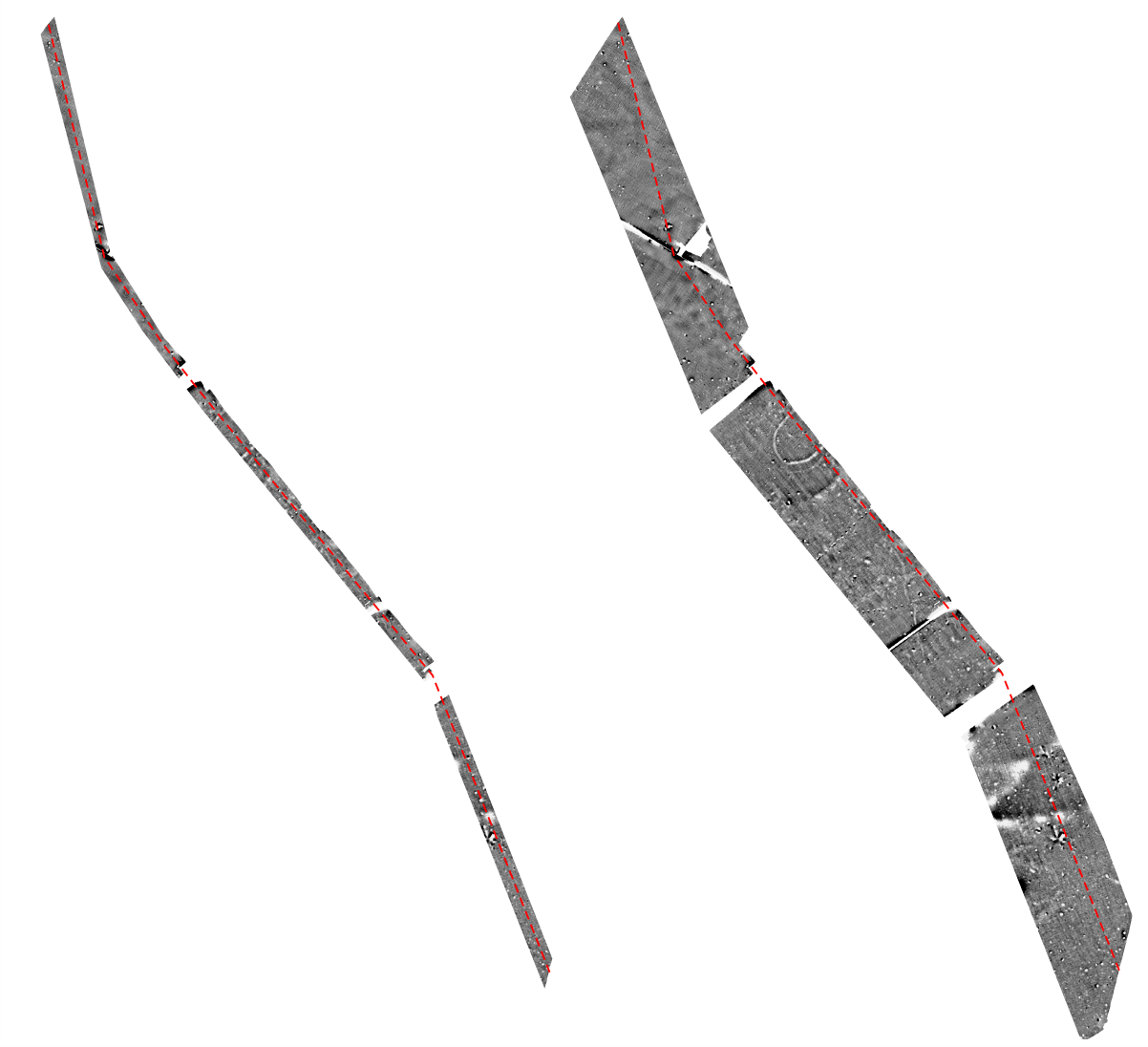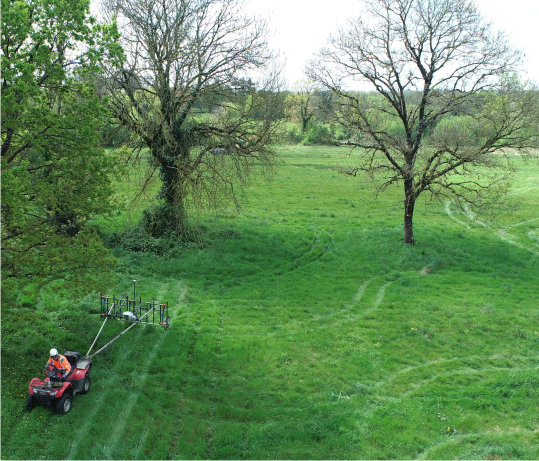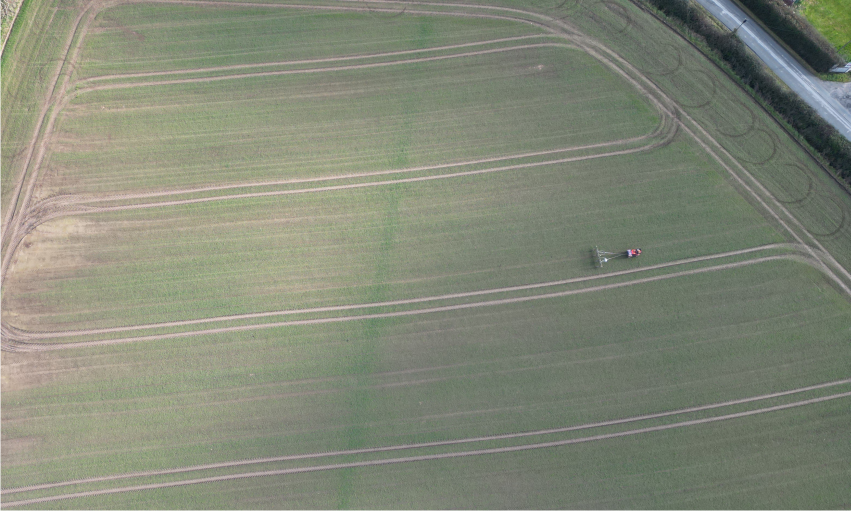Cable routes are often given secondary consideration when developing renewable energy infrastructure due to their relatively small area compared to the overall development. However, the length and linearity of cable routes (and pipelines) mean that they are no less likely to interfere with buried archaeology, and it is as important to assess the archaeological potential along a cable route as it is across the main development site.
Traditionally, archaeological geophysical surveys were a laborious process, which tended to lead to relatively narrow survey corridors. Narrow survey areas present two problems:
1) Archaeological Context
Anomalous geophysical responses indicating archaeology can still be identified within a narrow survey corridor; however, the extent of such a feature and its relationship with the broader area will not be obvious.
2) No room to manouvre
If archaeology is encountered, an alternative route may need to be sought. A narrow corridor will not provide enough area to alter the cable route; however, with a wider area surveyed, a different alignment can be designed that would satisfy the requirement to safeguard any identified archaeology.

Modern, multi-sensor towed arrays such as the Sensy Magneto mean that cable route surveys are no longer constrained to diminutive corridors. Much wider swathes can be acquired in less time. It is now recommended that a 60m wide swath be acquired.
In the image above, the left-hand cable route has a survey corridor that measures 10m across. Several linear features cross the corridor; however, it is impossible to discern what the features are from such a narrow strip. When the width of the survey corridor is extended to 60m, it can be seen that the two linear features in the centre of the route are, in fact, two sides of an oblate bivillate ring ditch. Not only does the wider corridor make interpretation possible, but it also provides enough data to propose an alternate route that would avoid this ancient monument.

For help designing and conducting a suitable geophysical investigation of your site, call us on +44 (0) 2920 700127 or email web@terradat.co.uk

